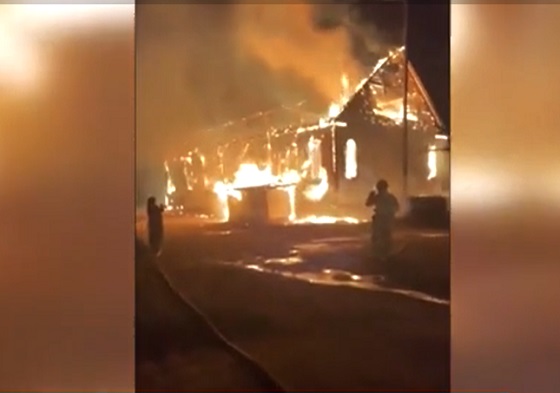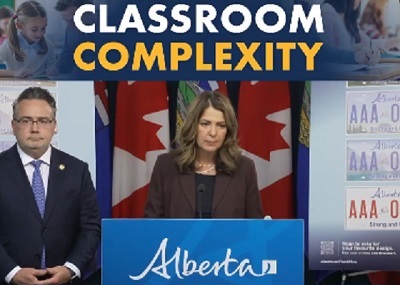Alberta
Critically Important Planning Documents for All Albertans 18 and Over

Critically Important Planning Documents for All Albertans 18 and Over
So now that we are doing our best to “flatten the curve” and all have some extra time on our hands, please take a break from stressing about the news or de-stressing with funny posts on social media to pay attention to another kind of critically important planning.
There are three very important advanced care planning documents that all Albertans over 18 years of age (and especially those of us with children) should have completed in order to be fully prepared for emergencies, like the current COVID-19 pandemic or much more common (but often, unexpected) events such as sudden illness or car accidents:
1) a Personal Directive – that states who would speak for you in making decisions about medical and personal care, if you become unable to speak for yourself (unconscious, unable to communicate). This person is called your “agent”,
2) an Enduring Power of Attorney – that states who would take care of your financial matters if you become unable/incapable of doing this yourself; and
3) a Will – that says how you want your estate to be handled after you die.
The Personal Directive has taken the place of what used to be called a “living will”. Information about what it is, the kinds of instructions to write, why you should write one and how to prepare a Personal Directive (as well as the other documents listed here) are available on the Government of Alberta website: http://www.alberta.ca . You can also download the Personal Directive form from that website. You do not need the help of a lawyer to fill it in. You can register your Personal Directive online but, most importantly, give a copy to the Agent you named in the document and keep a copy in with other important documents in your home. You can also give a copy to your Family Physician to keep with your medical record.
It is recommended that you consult a lawyer to create the Enduring Power of Attorney and Will documents. The Government of Alberta website includes instructions about how to get this kind of legal help. If you die without a Will, the Government will do the work to settle your estate but they will also take the cost of this service out of the inheritance that you have worked hard to leave to your loved ones.
Another excellent website that can help as you go through the process of thinking about and sharing your wishes for future health and personal care is: http://www.advancedcareplanning.ca. The slogan for their 2020 Speak Up Canada campaign is “A Life Well Lived is a Life Well Planned”. In this time of uncertainty, ensuring that you have done all you can to be sure that your loved ones have the best tools to help you in case of emergency can give us all some peace of mind.
Dr Maureen McCall, MD, MPH, CCFP Palliative Care Physician, Red Deer
Renee at Primary Care Network has some tips on managing anxiety
Alberta
Diploma Exams Affected: No school Monday as ATA rejects offer of enhanced mediation

Premier Danielle Smith, Minister of Finance Nate Horner, and Minister of Education Demetrios Nicolaides issued the following statement.
“Yesterday, the Provincial Bargaining and Compensation Office wrote to the Alberta Teachers’ Association (ATA) and formally requested an agreement to enter an enhanced mediation process.
“This process would have ensured that students returned to the classrooms on Monday, and that teachers returned to work.
“Negotiating would have continued with the ATA, Teachers’ Employer Bargaining Association (TEBA) and a third-party mediator to propose a recommended agreement.
“We are very disappointed that the Alberta Teachers’ Association refused this offer. Teachers and students should also be disappointed.
“PBCO made this offer to the ATA because the union has not made a reasonable offer and this strike is impacting students. Alberta’s government is trying to put kids first and bring an end to this strike.
“The offer of enhanced mediation provided a clear path to ending it.
“We want the same things as the ATA: More teachers. More pay for teachers. More educational assistants. And more classrooms.
“This strike has gone on too long and we are extremely concerned about the impact it is having on students.
“We are willing to consider further options to ensure that our next generation gets the world-class education they deserve. After about three weeks, a strike of this nature would reach the threshold of causing irreparable harm to our students’ education.
“The ATA needs to do what is right for its members, and for all Alberta students.
“If it refuses to do so, we will consider further options to bring this strike to an end.”
Diploma exam update
November diploma exams will be optional for students.
With instructional time in schools disrupted due to the teacher strike, the November 2025 diploma exams will now be optional for students. Students who wish to write a diploma exam may request to do so, and their school boards will accommodate the request.
The optional diploma exams apply to all schools provincewide. These exams will still take place on the currently scheduled dates.
Students who choose not to write the November diploma exams can still complete their courses and graduate on time. Their final grade will be based entirely on the school-awarded mark provided by their teacher.
Choosing not to write the November diploma exams will not affect a student’s ability to apply to, be accepted by, or attend post-secondary institutions after graduation.
No changes have been made to the January and June diplomas and provincial achievement tests.
Quick facts
- Students are automatically exempted from writing the November diploma exams but can request to write them.
- School boards must allow the student to write the diploma exam if requested.
Alberta
Alberta taxpayers should know how much their municipal governments spend

From the Fraser Institute
By Tegan Hill and Austin Thompson
Next week, voters across Alberta will go to the polls to elect their local governments. Of course, while the issues vary depending on the city, town or district, all municipal governments spend taxpayer money.
And according to a recent study, Grande Prairie County and Red Deer County were among Alberta’s highest-spending municipalities (on a per-person basis) in 2023 (the latest year of comparable data). Kara Westerlund, president of the Rural Municipalities of Alberta, said that’s no surprise—arguing that it’s expensive to serve a small number of residents spread over large areas.
That challenge is real. In rural areas, fewer people share the cost of roads, parks and emergency services. But high spending isn’t inevitable. Some rural municipalities managed to spend far less, demonstrating that local choices about what services to provide, and how to deliver them, matter.
Consider the contrast in spending levels among rural counties. In 2023, Grande Prairie County and Red Deer County spent $5,413 and $4,619 per person, respectively. Foothills County, by comparison, spent just $2,570 per person. All three counties have relatively low population densities (fewer than seven residents per square kilometre) yet their per-person spending varies widely. (In case you’re wondering, Calgary spent $3,144 and Edmonton spent $3,241.)
Some of that variation reflects differences in the cost of similar services. For example, all three counties provide fire protection but in 2023 this service cost $56.95 per person in Grande Prairie County, $38.51 in Red Deer County and $10.32 in Foothills County. Other spending differences reflect not just how much is spent, but whether a service is offered at all. For instance, in 2023 Grande Prairie County recorded $46,283 in daycare spending, while Red Deer County and Foothills County had none.
Put simply, population density alone simply doesn’t explain why some municipalities spend more than others. Much depends on the choices municipal governments make and how efficiently they deliver services.
Westerlund also dismissed comparisons showing that some counties spend more per person than nearby towns and cities, calling them “apples to oranges.” It’s true that rural municipalities and cities differ—but that doesn’t make comparisons meaningless. After all, whether apples are a good deal depends on the price of other fruit, and a savvy shopper might switch to oranges if they offer better value. In the same way, comparing municipal spending—across all types of communities—helps Albertans judge whether they get good value for their tax dollars.
Every municipality offers a different mix of services and those choices come with different price tags. Consider three nearby municipalities: in 2023, Rockyview County spent $3,419 per person, Calgary spent $3,144 and Airdrie spent $2,187. These differences reflect real trade-offs in the scope, quality and cost of local services. Albertans should decide for themselves which mix of local services best suits their needs—but they can’t do that without clear data on what those services actually cost.
A big municipal tax bill isn’t an inevitable consequence of rural living. How much gets spent in each Alberta municipality depends greatly on the choices made by the mayors, reeves and councillors Albertans will elect next week. And for Albertans to determine whether or not they get good value for their local tax dollars, they must know how much their municipality is spending.
-

 Red Deer2 hours ago
Red Deer2 hours agoThe City of Red Deer’s Financial Troubles: Here Are The Candidates I Am Voting For And Why.
-

 Alberta2 days ago
Alberta2 days agoClick here to help choose Alberta’s new licence plate design
-

 International2 days ago
International2 days agoDaughter convinces healthy father to die in double assisted suicide with mother
-

 International2 days ago
International2 days agoHamas will disarm or die
-

 International2 days ago
International2 days agoUS Warns Hamas To Halt Executions
-

 illegal immigration2 days ago
illegal immigration2 days agoLos Angeles declares a state of emergency over ICE deportations
-

 Indigenous2 days ago
Indigenous2 days agoConstitutional lawyer calls for ‘false’ claims to end in Canadian residential schools burials
-

 Alberta1 day ago
Alberta1 day agoPremier Smith addresses the most important issue facing Alberta teachers: Classroom Complexity






